FEATURED STORYMangrove forests: Photography winners show beauty of ecosystems
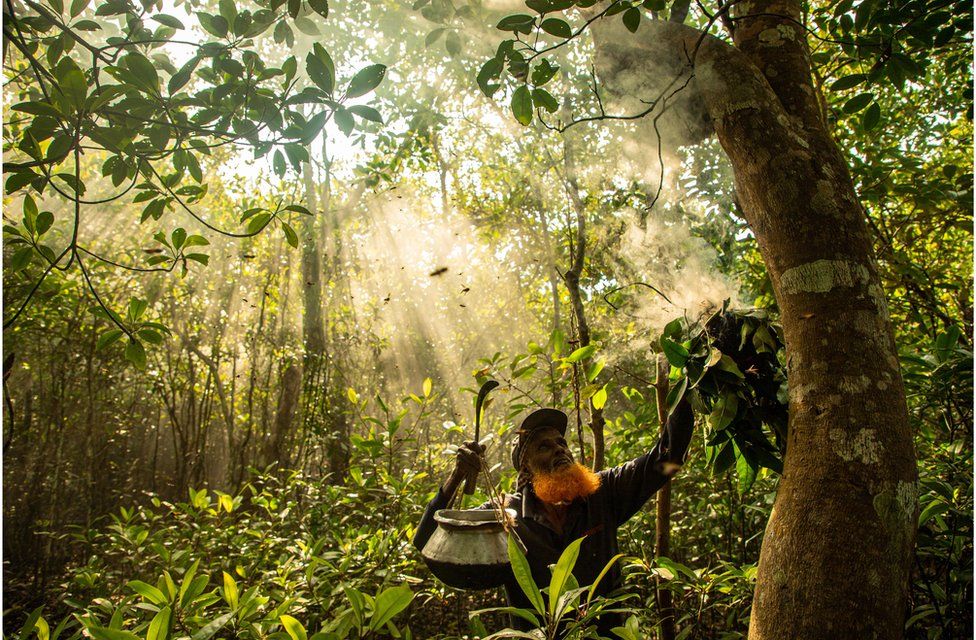
GLOBAL – Musfiqur Rahman has been named overall winner of this year’s Mangrove Photography Awards, for his image of a wild honey gatherer subduing giant honeybees with smoke, in Bangladesh. Run by the Mangrove Action Project, the competition – now in its seventh year – aims to show the relationships between wildlife, coastal communities and mangrove forests, as well as the fragility of these unique ecosystems, both above and below the waterline. Rahman’s winning image, A Brave Livelihood, was selected from more than 1,300 entries from 65 countries. “Indigenous Mowal honey gatherers, protected by Bonbibi, the forest goddess, must evade the dangers (Bengal tigers and saltwater crocodiles) lurking in the mangroves,” says Rahman. “This ancient tradition and sustainable relationship between people and the mangrove forest takes place in the Sundarbans in Bangladesh, and also India.” READ MORE GLOBAL Mangrove Restoration Frustration
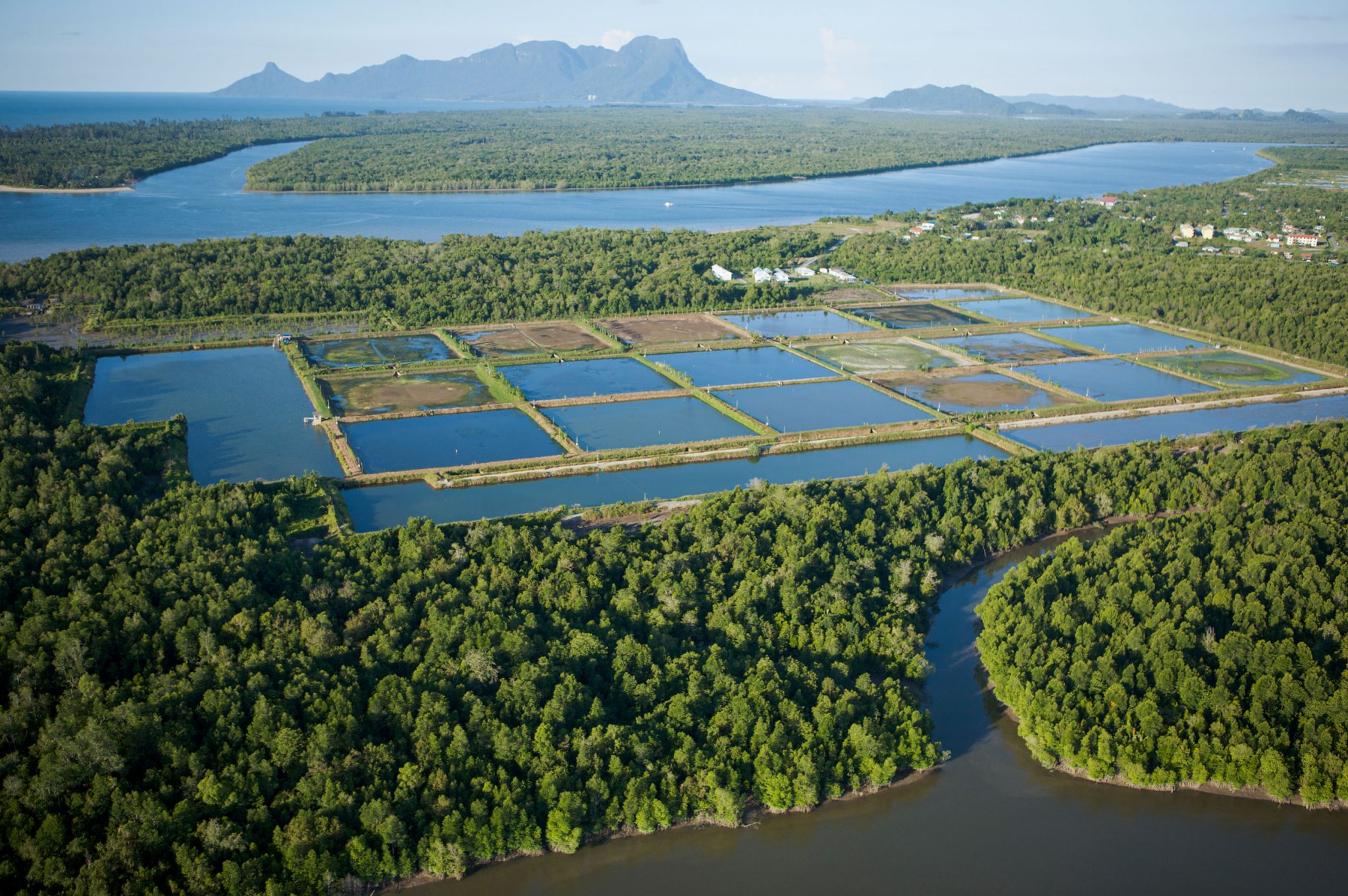
GLOBAL – If any single event was a watershed for conservation of the world’s mangrove forests, it was the Indian Ocean tsunami of 2004. In several affected countries, nonprofits and government agencies swiftly began planting mangrove seedlings; in Sri Lanka, plantings were made at more than 20 sites around the island’s rim. But when University of Ruhuna botanist Sunanda Kodikara visited those sites between 2012 and 2014, he was shocked to find mangroves regrowing on only about 20 percent of the area planted. Elsewhere, just a few saplings persevered, or none at all. “I saw so many dead plants,” Kodikara recalls. Especially disheartening, he says, was the fact that some US $13-million had been spent on the efforts. Such results are particularly frustrating to experts, as the need for protecting and restoring the world’s “blue forests” is greater than ever. READ MORE The Promise and the Challenge of “Restorative Aquaculture”

GLOBAL- The stories of the shrinking Amazon are hard to miss—and hard to stomach. To make room for cattle ranches, impoverished farmers set fires and cut old-growth trees, some of which are over 1,000 years old. Only a short distance east, another ancient forest is suffering, but the culprit is a different kind of livestock: shrimp. Like the Amazon, mangrove swamps are some of the richest ecosystems on the planet, teeming with tropical fish and birds like the roseate spoonbill. Shrimp ponds load up coastal waters with shrimp waste, which drifts and smothers nearby mangroves. Aquaculture is one of the world’s fastest-growing food industries, spurred on in many cases by government funding and often at the expense of the environment as coastlines are cleared away to make room for fish, seaweed, and shellfish farms. But some see an opportunity for compromise and even collaboration between ocean farmers and nature, especially in places that aren’t as pristine as the Amazon. READ MORE AFRICA The Nigerian Activist Trying to Sell Plants to the Oil Company That Destroyed Them

NIGERIA – “I need to help my women to stand,” says Martha Agbani, who helped a group of women from the Niger Delta build a flourishing mangrove nursery. When the women arrived in the quiet, waterside village of Yaataah on an afternoon in May, some local young men hurried over to them. They offered to carry the women’s loads — old rice sacks and tin basins full of seeds, ready for planting — down to the swamp. They seemed helpful but the women’s leader, Martha Agbani, sensed danger. “No, leave it!” she said sharply. “Let the women carry.” It wasn’t the first time she had run into these men in Yaataah, perched on a small hill in the Niger Delta region of Nigeria, and she knew their offer contained menace: If she didn’t pay them, there would be trouble. And one of her main goals was to create work for the women. Mrs. Agbani, a hardy woman with a ready laugh and a kind but no-nonsense manner, was trying to turn her hand to a business that could put money in women’s pockets and go some way to restoring their devastated environment. READ MORE Int’l Support for Mangrove Forests Conservation Begins
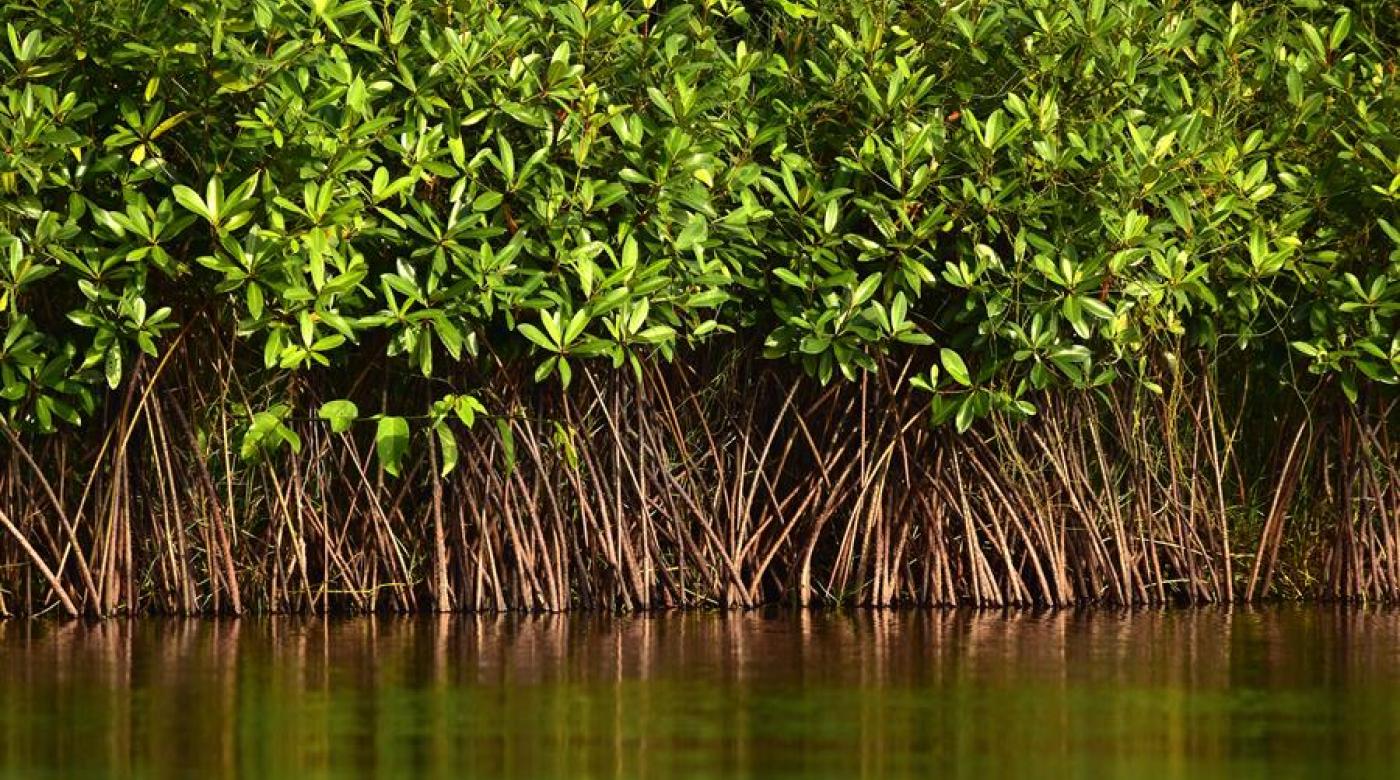
LIBERIA – A one-day steering committee meeting which focused on how Liberia could judiciously expend the EU US$125,000 mangrove forests (wetlands) conservation grant was on Tuesday August 31, 2021 held in Monrovia. The Liberia platform shall coordinate and monitor all project activities, serve as the lead advocate for the project, serve as a decision-making platform on the review and validation of project outcome and the exchange of experiences to ensure cross-fertilization of ideas that will support project success. The Project Manager for Wetlands International Africa, Alhaji Malikie Siaka, provided detailed insight into the project including the ToRs of the committee, project updates and the necessary mechanisms required to successfully implement the project. He stressed the obvious natural significance of wetlands as far as the provision of ecosystem services to communities, nations and the rest of the world are concerned and hoped that Liberia will utilize the opportunity efficiently. READ MORE AMERICAS Strengthen 60 Women Farmers in El Salvador

EL SALVADORE – This project will help provide food security to women farmers and their families in rural El Salvador. Women traditionally have less access to land and resources than men and women-led households are more vulnerable to food insecurity. These families, especially hard-hit by the pandemic and climate change, will benefit from this project through access to farming materials and training. As a result these women will have the resources and knowledge to feed their families and face future disasters. READ MORE Pew Applauds Belizes Ambitious Commitment to Protect Coastal Wetlands
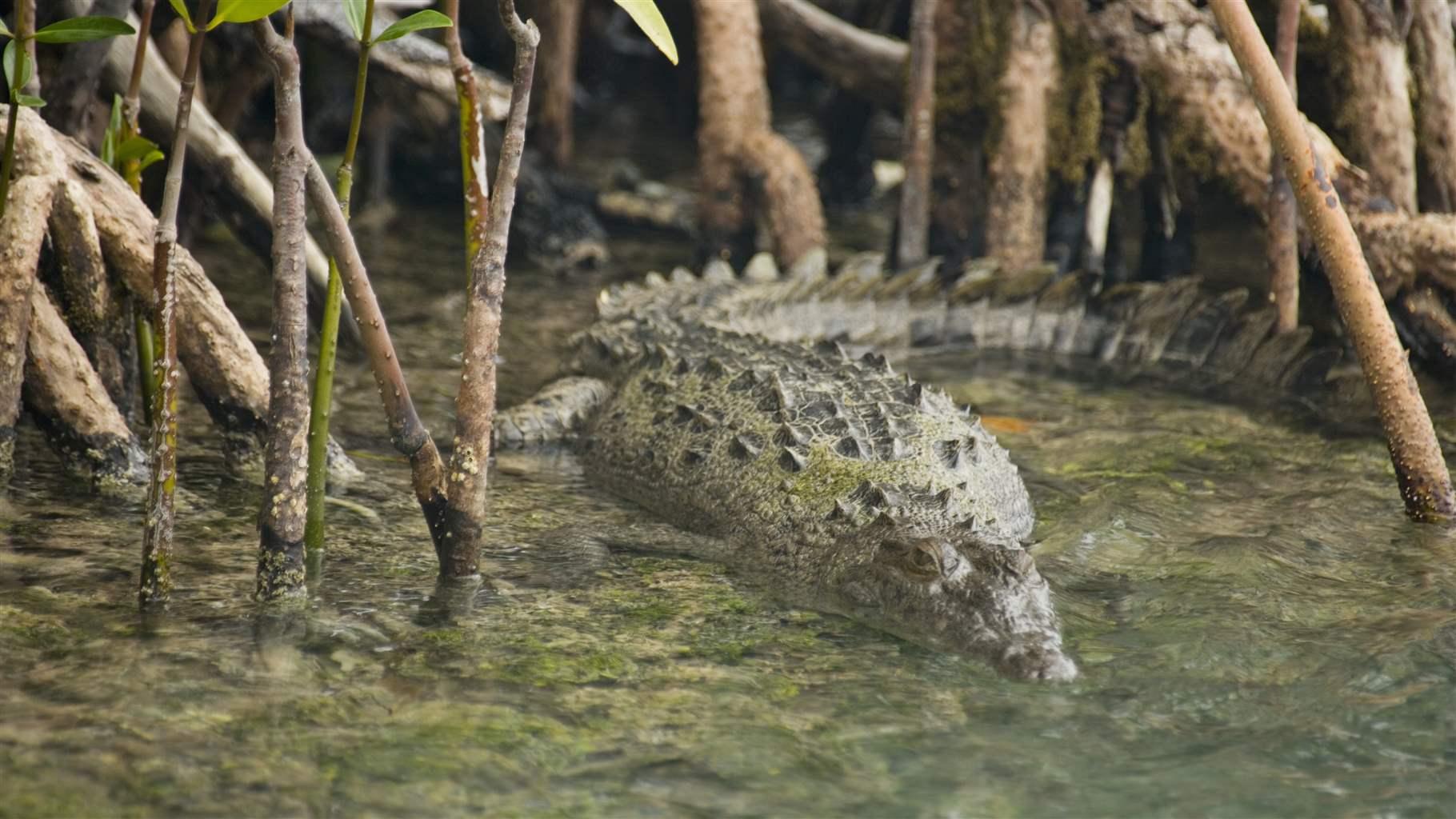
BELIZE – The Pew Charitable Trusts today congratulated the government of Belize for committing to protect and restore mangrove and seagrass ecosystems within its updated nationally determined contribution (NDC) to the Paris Agreement. The country’s actions will help safeguard the vital ecosystem, biodiversity, and climate benefits that these habitats provide. “Coastal ecosystems have historically been a vital part of Belize’s natural and cultural heritage,” said Dr. Kenrick Williams, CEO of Belize’s National Climate Change Office within the Ministry of Sustainable Development, Climate Change and Disaster Risk Management. “By committing to the protection, conservation, restoration, and expansion of these ecosystems, we aim to demonstrate the important role that nature-based solutions can play in reducing climate risk impacts and absorbing carbon, in addition to a multiplicity of other social and economic benefits. In the long term, Belize will continue to show real leadership in valuing the contribution of these systems that so many of our people depend on for their protection and livelihood.” READ MORE Video outlines climate challenges facing Southwest Florida

USA – The Environmental Defense Fund released the second video in a four-part series aimed at educating Floridians on the current effects of climate change and possible solutions to address it. The new installment of “Keeping Florida, Florida” focuses on the potentially catastrophic impacts of sea level rise in Southwest Florida and details the U.S. Army Corps of Engineers-proposed Back Bay Study, which recommends traditional, hardened infrastructure, including a seawall, to protect the region. The video claims that some infrastructure solutions in the U.S. Army Corps plan could exacerbate flooding in Collier County. It asserts that if there are structural protections to the north and the south, then water would take the path of least resistance and hit Collier. EDF is instead recommending the county tackle flood mitigation with nature-based solutions such as mangroves and oyster beds. WATCH VIDEO Oyster Shell Recycling Offers a Glimpse of the Future
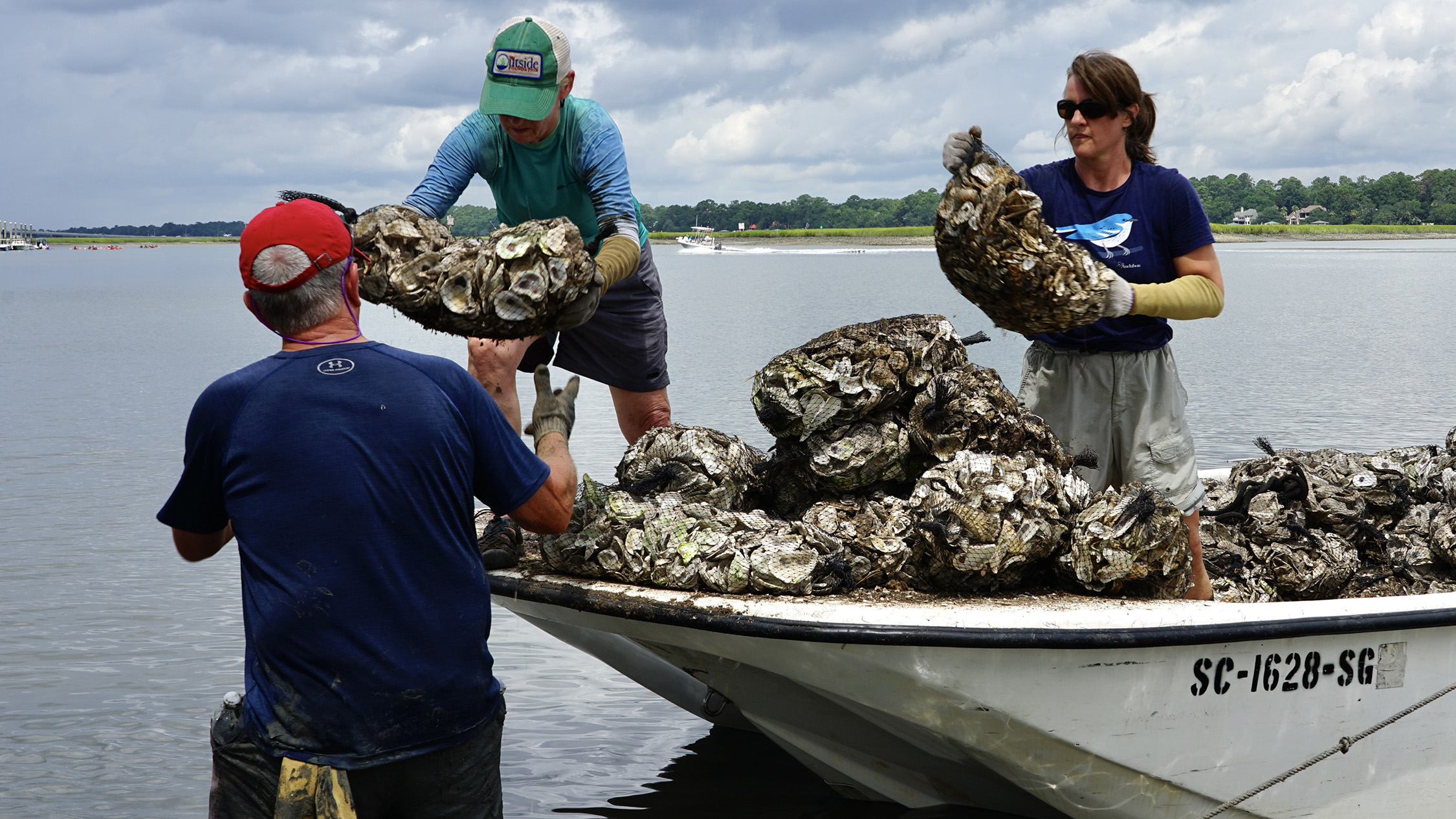
USA – The next time you eat an oyster, spare a thought for its shell. Whether your oyster was wild caught or raised in a farm, that shell grew for years in the water. And if returned there—instead of being discarded on land—it can keep contributing to the species’ cycle of life. That’s why shell recycling programs have gained traction in many coastal communities around the U.S. For example, in 2020, the Outside Foundation’s shell recycling program on Hilton Head Island, South Carolina—which The Pew Charitable Trusts supported—collected 15.4 tons of recycled shells from 15 restaurants and a handful of festivals, all of which will be placed back into local waterways to create new oyster reefs. Last month, foundation volunteers teamed up with reef-builders from South Carolina’s Department of Natural Resources (SCDNR) to build the first reef, which stretches 60 feet in Broad Creek and is made up of 10,500 pounds of oyster shells. Several more reefs are being built in the area this summer. READ MORE ASIA Ka Dodoy: Guardian of Zamboanga Sibugay mangroves
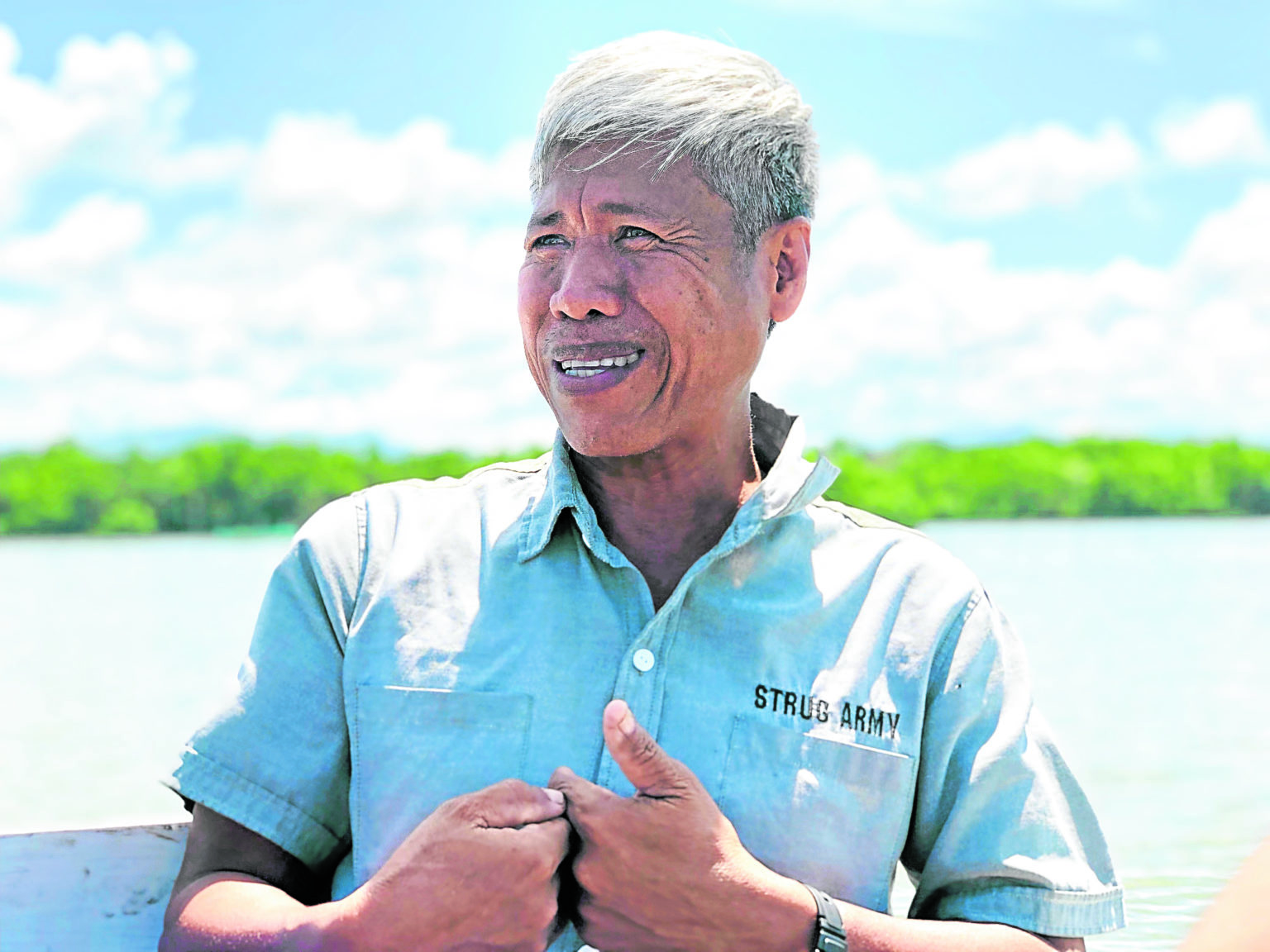
PHILIPPINES – Fascinated by his fisherman father’s skills in mechanics, Roberto Magbanua Ballon would have pursued a career in mechanical engineering after graduating from high school in 1991 had his family’s income allowed. In 1981, when the Ballon family relocated from Capiz in search of greener pastures in the coastal village of Concepcion in Kabasalan town, Zamboanga Sibugay province, large tracts of mangrove forests along Sibuguey Bay were being cleared and turned into aquaculture farms. Ballon recalled that along with the massive clearing of mangrove forests, there was also brisk buying of cut mangrove trees for firewood. “The traders haul by boatloads. It was massive,” he said. A young Ballon who was just starting a family in late 1992 would rise up to the challenge, rallying fellow fishers to work to bring back the bounty of the sea, the results of which eventually fished them out of poverty.Three decades on, Ballon, now 53, would be recognized as “the key mover” of that transformation among the coastal communities along Sibuguey Bay, making it among five recipients of this year’s Ramon Magsaysay Award, Asia’s equivalent of the Nobel Prize. READ MORE Group calls on Bangladesh Government to End Coal Power Now!
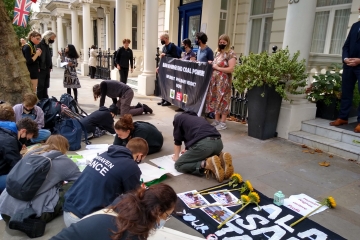
BANGLADESH – 26th August marks the 15th anniversary of the Phulbari killings when three young people were shot dead and more than two hundred injured during a non-violent demonstration of 80,000 people who marched against coal mining in Phulbari and the displacement of 130,000 people from the region by London-listed Asia Energy, thereafter GCM Resources. The day has nationally been called Phulbari Day since. Powerful resistance in the aftermath of the shooting in Phulbari has put a 15-year long halt to the project. Following the killing of the three young people the Bangladesh government signed a contract with the people in Phulbari on 30th August, 2006. The contract, nationally known as the Phulbari Verdict, suggested that the government would ban coal mining in Bangladesh. The government thus overturned GCM’s right to operate in Bangladesh. Despite lacking a valid contract for mining, GCM Resources plc (GCM) is selling shares on the UK’s share market. The company is currently listed as a mining company on the London Stock Exchange’s Alternative Investment Market (AIM). They have extended mining contracts with two China based companies and they are selling shares in London in the name of a “Phulbari coal project”, a project which does not exist. This is an insult to the affected communities who lost their children in the violence in Phulbari. READ MORE LAST WORD 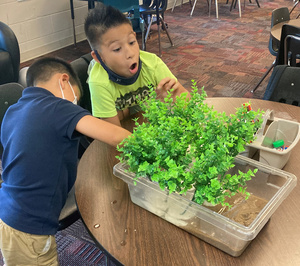
This summer the Mangrove Action Project helped my students at the Salvation Army Youth Education Town in Arlington, TX dive into STEM learning fun! The MAP sent us amazing resources that helped give our students the knowledge they needed to build their very own mangrove forest. Here you can see two of my students (from left, Max and Leo) exploring their mangrove forest. My students had a blast, and were able to learn why mangrove forests are key to keeping our coast lines and estuaries safe from erosion and are home to many different species of fascinating animals. I am so thankful that the MAP partnered with us, and would like to say a big thank you to them!
Willa Grace Simms
Program Coordinator
The Salvation Army North Texas Youth Education Town
Like this newsletter?
Pease consider donating to MAP to keep it going.
Giving could never be easier  | URGENT ACTION VOLUNTEERS NEEDED! Saturday, Sept 25
Bradenton Beach, Florida – USA
New College of Florida and the Sarasota Bay Estuary Program seek volunteers to help plant native plants on Tidy Island, a large mangrove peninsula in upper Sarasota Bay. Please note that for safety reasons, this event is for volunteers age 10 and up. READ MORE Stop the East African Pipeline that threatens the planet #STOPEACOP – CLICK HERE Stop construction work on a private port In Defense of the Quilombo Boca Do Rio TAKE ACTION! Tell Sumitomo to stop building polluting coal power in Bangladesh! TAKE ACTION! Stop Adaro, Indonesia’s coal giant, from refinance its debt.
TAKE ACTION
Like this newsletter? Pease consider donating to MAP to keep it going. Giving could never be easier
13 Year old Linda Li “Mangrove Adventure” from Kid Dream Art School

WATCH NOW 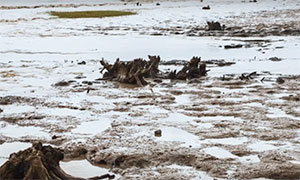
Restoring The Natural Mangrove Forest
Watch movie 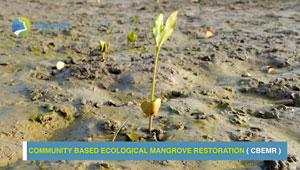
Community Based Ecological Mangrove Restoration in Rufiji Delta VIEW VIDEO Video: Mangroves for the Future – A look bacK. As the latest phase of Mangroves for the Future (MFF) draws to a close, this video highlights some of the project’s most successful initiatives – from local women supporting national park management in Viet Nam to an island in the Maldives that has become a model for waste management, and everything in between. View Here WANT TO GET INVOLVED?
Follow and Join MAP!    
Like this newsletter? Pease consider donating to MAP to keep it going. Giving could never be easier 

Singing for the Sundarbans WATCH HERE Entrevista con Monica Quarto del Mangrove Action Project (Spanish language) Oye Aqui
VOLUNTEER OPPORTUNITY 
MANGROVE ISSUES Want to learn more about mangroves?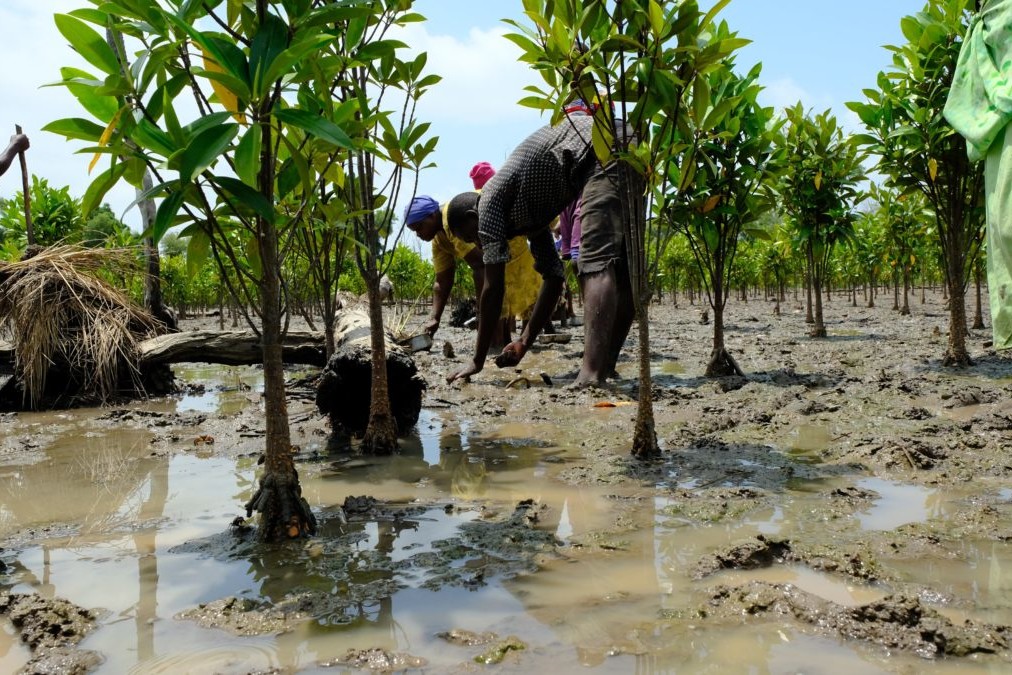
Our short presentation will give you a better understanding of the issues we are working to solve. WATCH PRESENTATION What is CBEMR? Download MAP’s 2 page CBEMR Information Sheet containing links to all MAP’s CBEMR resources – CLICK HERE
View MAP’s uploaded Videos at
MAP Video Gallery Question Your Shrimp Consumer/Markets Campaign!
WATCH VIDEO Mangroves: Guidebook to Malaysia – Click Here SHARE MAP’S VISION
CLICK HERE to watch short introductory video. Together we can work “at the roots of the sea”. Our short documentary, Reducing the Risk of Disaster through Nature-Based Solutions : Mangroves
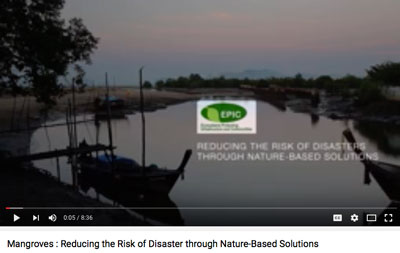
Marvellous Mangroves Curriculum The Marvellous Mangroves Curriculum begins with a simple philosophy – getting future generations to not only learn about, but understand the importance of mangrove forests. VISIT 
The award-winning Marvellous Mangroves (MM) curriculum educates children on the importance of mangroves and their ecological functions, teaching them about modern challenges and mechanisms for sustainability. VIEW VIDEO Marvellous Mangroves Curriculum in Bangladesh – WATCH VIDEO
MARVELLOUS MANGROVES IN BRAZIL
En Portuges 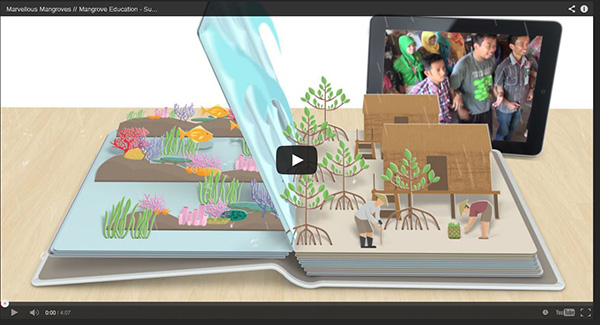
Marvellous Mangroves – A Curriculum-Based Teachers Guide.
Like this newsletter? Pease consider donating to MAP to keep it going. Giving could never be easier 
“Question Your Shrimp” Campaign Question Your Shrimp – is it really sustainable? Sign the Petition
Note to Our Readers: We strive to keep active links in our newsletter. However, due to circumstances beyond our control, occasionally links to stories may become broken. If you find a link to a story is not functioning, please cut and paste the headline into your browser search bar. In most cases you should be able to locate the original story.
Not yet a MAP News subscriber?
Click here to subscribe. 
|



























